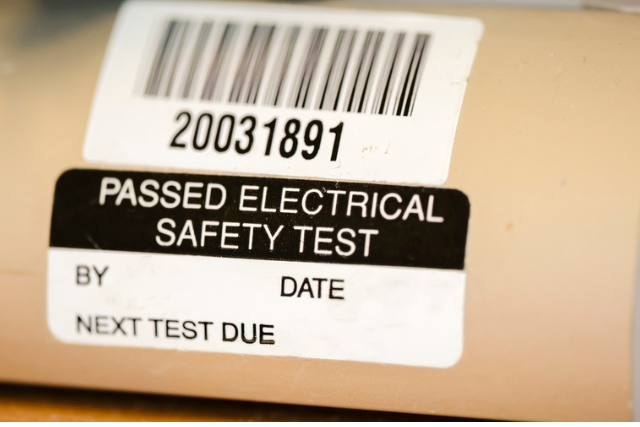UK Staycation Market Update
Staycations are no longer just a summer trend: they’ve become a year-round pattern, and the Lake District is a...

Electrical safety in any home is essential, and if you are a holiday let owner you have a duty of care to ensure that all electrical appliances, circuits and fixed installations within your property are safe and compliant with current regulations.
As well as peace of mind for you and your guests, if you are confident your property complies with electrical safety regulations, you’re also preventing potential injury to guests and your own liability.
Here’s our rundown of what’s required for electrical safety in your holiday home, and helpful links to find out more.
As a responsible holiday let owner you can’t afford to be complacent where electrical safety is concerned.
As an owner, you are required by law to adhere to the necessary electrical safety regulations as set out in current standards as governed by the Electricity at Work Regulations (1989). The legislation states that all electrical systems in a property must be maintained to avoid danger to all who use the premises.

Image credit: Stephen Barnes
New regulations for all private rental landlords on electrical safety for property letting came into force on 1st June 2020 and all privately rented properties must have, by 1 April, 2021 a valid EICR (Electrical Installation Condition Report) in place.
Although not yet a legal requirement for holiday homes, it is an urgent reminder that as a holiday let owner you are required by law to ensure that all electrical appliances, circuits and fixed installations within your holiday let are safe and are not hazardous to your guests.
At Lakelovers, we would, however, recommend that all holiday let owners have a valid Electrical Installation Condition Report (EICR) in place. Having a qualified electrician carry out an EICR report is the best way to ensure that you are protected from liability and that your guests are safe.
An EICR is a documented account produced by a qualified and competent electrical engineer, as part of a detailed inspection of the quality of the ‘fixed’ and permanently connected electrical installations in a property. This will include wiring, plug sockets, light fittings and consumer units, showers, extractors and fixed appliances. A bit like an MOT for your home electrics.
The EICR will identify if there are any hazardous faults, defects and electrical safety problems in a home.
During the inspection, your chosen electrical engineer will check the condition of your electrical installations against the BS 7671 IET Wiring Regulations (the UK standard for the safety of electrical installations).
Following the inspection, your chosen electrical engineer will report on any electrical works in a priority order that are needed to maintain guest safety and prevent property damage. You can then rest in the knowledge that you have an EICR official certificate from a qualified professional, which you can show to tenants or local authorities if any electrical issues arise.
Although there are currently no government regulations published for holiday let owners, read the government’s guide on electrical safety standards for landlords in the private sector, which further details the content of the EICR inspection.
This varies depending on the size of a property. Generally, a two-to-three-bedroom house would be between £150 – £200. The price may rise for larger homes, or older properties perhaps with outdated wiring which needing longer checks.
You will also also need to factor in the cost of any remedial work required for areas that may fail the test.
The recommendations for electrical safety tests are at least every five years, but the frequency of inspection and testing depends upon the type of equipment and the environment it is used in. When an electrician carries our your EICR, they will advise you on the timescales needed.
Your duty of care applies to both installed and portable electrical appliances, for which you should also undertake regular Portable Appliance Testing (PAT).
PAT testing is the examination of electrical appliances, in your holiday home, checking them for safety from potential defects and hazards, through a series of visual inspections and electronic tests. This includes anything you plug in – such as as toasters, kettles, televisions, DVDs, music systems, coffee machines, computer systems or hair dryers.
Best practice is to have a qualified PAT testing carried out on an annual basis. Again, this proves you take electrical safety seriously, and there is a clear record (usually stuck to the appliance) of when the test was carried out.
Read more about PAT testing on the HSE website.
Here are some pointers for improving electrical safety in your holiday home:
For more advice on electrical safety advice in homes visit:
electricalsafetyfirst.org.uk | Safety around the home
electricalsafetyfirst.org.uk | How safe is your home leaflet
Need help or advice? Give our local team a call on 015394 88855 or email us at owners@lakelovers.co.uk. Alternatively, complete the form below to request contact from our team, including a copy of our FREE Owner Guide.